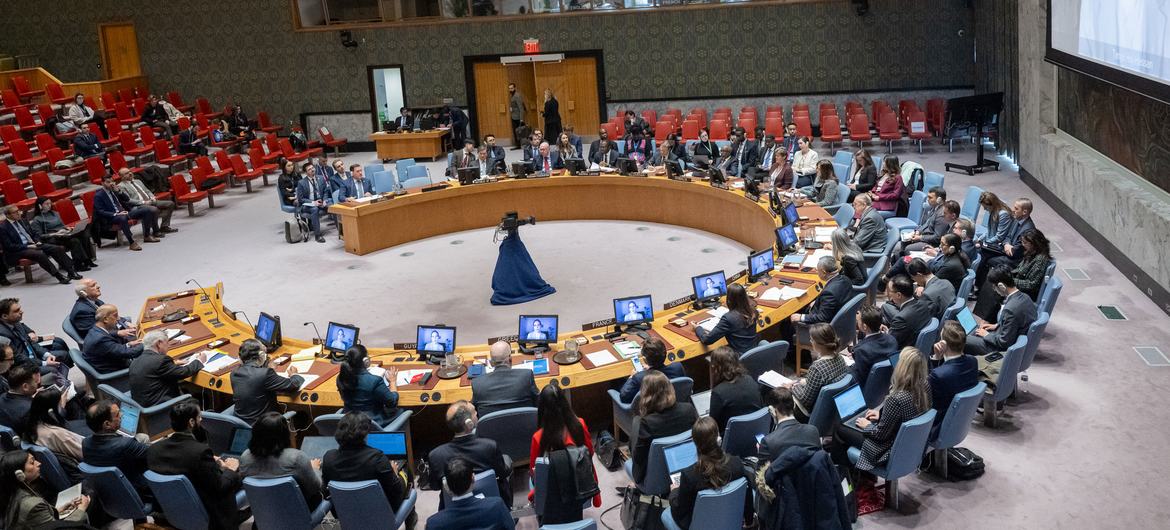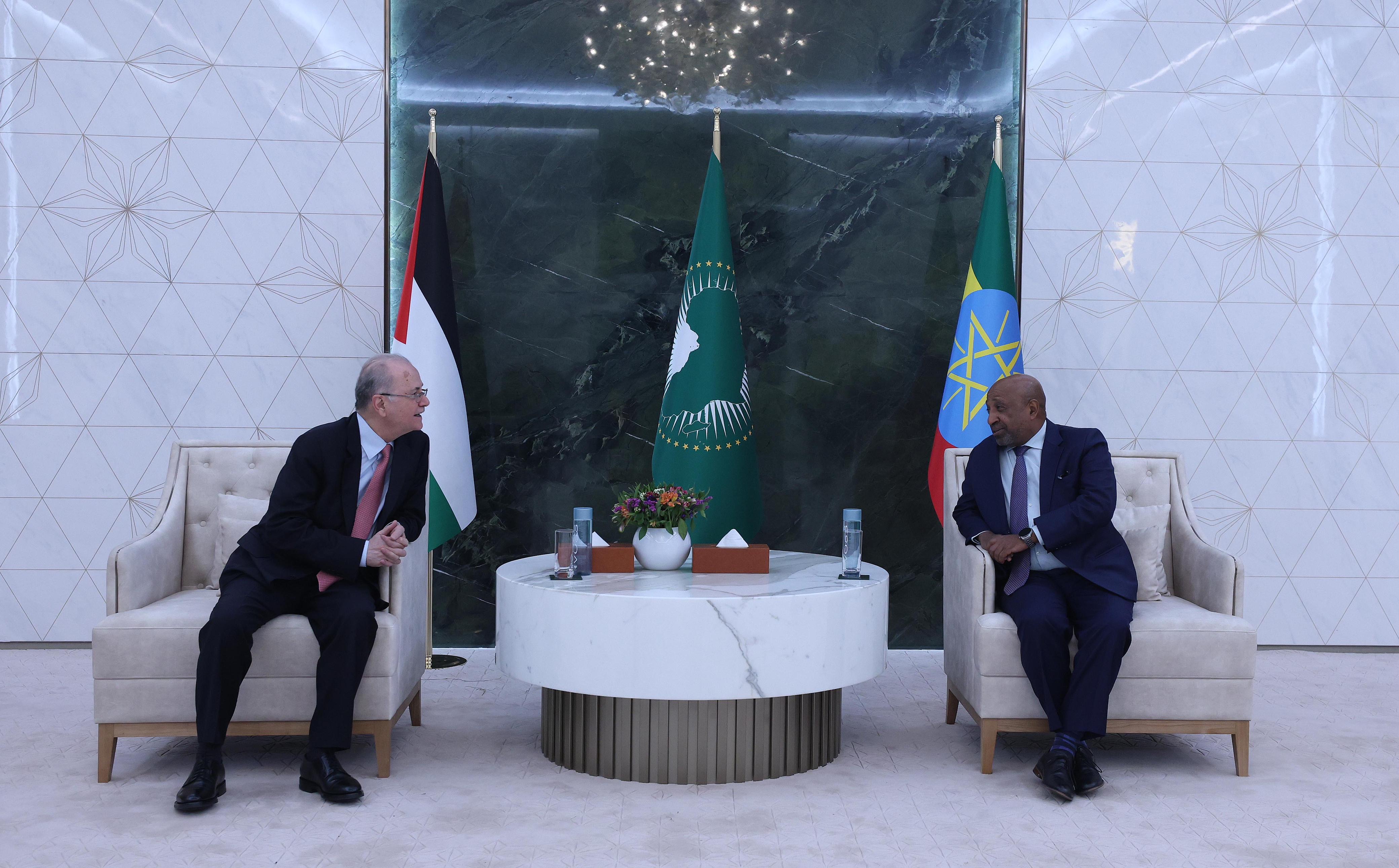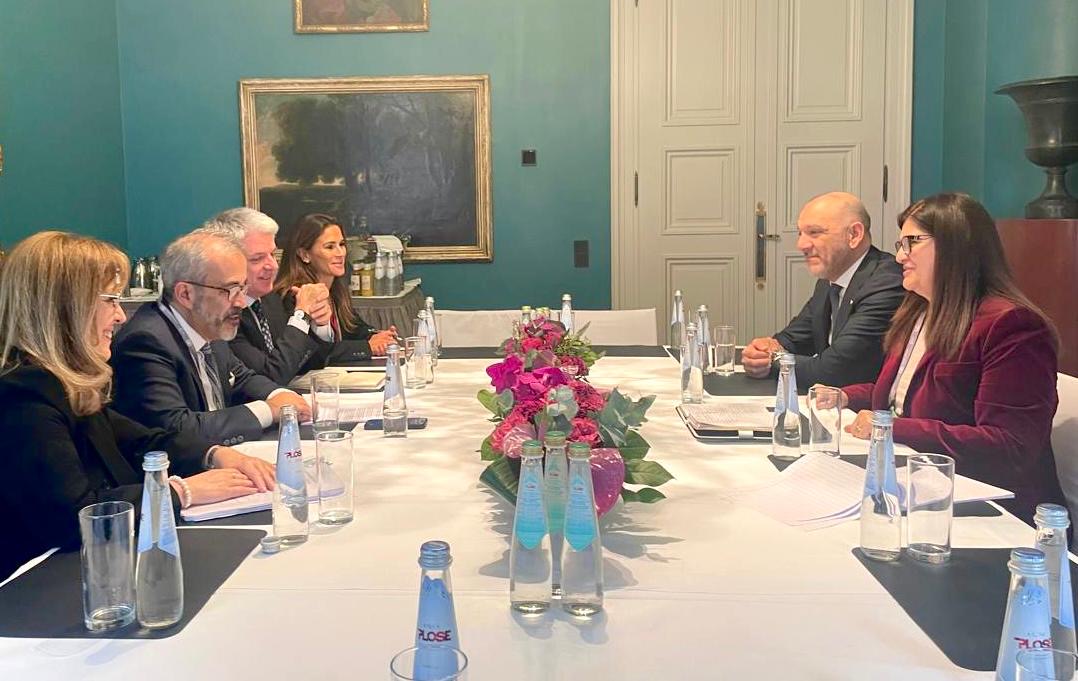NEW YORK, January 3, 2025 (WAFA) - The UN Security Council held on Friday an emergency session on the collapse of health services in Gaza. The meeting was requested by Algeria, which has just taken over the UN Security Council presidency in January.
United Nations High Commissioner for Human Rights, Volker Türk, warned during a briefing - via video conferencing - to the Security Council on the provision of healthcare in Gaza, that Israel’s ongoing attacks have a devastating impact on Gaza’s hospitals.
“A human rights catastrophe continues to unfold in Gaza before the eyes of the world. Israel’s means and methods of warfare have killed tens of thousands of people, inflicted vast displacement, and laid waste to the territory. This has raised utmost concerns about compliance with international law,” said Türk.
He highlighted a recent report by his Office covering the period between 7 October 2023 and 30 June 2024, which documented patterns of attacks on hospitals, starting with Israeli airstrikes, followed by raids by ground troops, the detention of some patients and staff, the forced removal of others and the withdrawal of troops, leaving the hospital essentially non-functional. The report also detailed the killings of patients, staff, and other civilians.
“The protection of hospitals during warfare is paramount and must be respected by all sides, at all times.”
The destruction of hospitals across Gaza goes beyond depriving Palestinians of their right to access adequate healthcare, stressed Türk, adding that those hospitals provided sanctuary for thousands of people with nowhere else to go.
Türk touched upon the destruction wrought by the Israeli military’s attacks last Friday on Kamal Adwan Hospital; the last functioning hospital in North Gaza, reflecting the patterns of attacks documented in the report. Some staff and patients were forced from the hospital while others, including the General Director, were detained, with many reports of torture and ill-treatment.
He said that the Israeli military’s operations in and around hospitals have had a terrible impact, precisely at a time of massive demands on healthcare due to the ongoing conflict.
“They have been particularly devastating for certain Palestinian civilians. Six babies have reportedly died of hypothermia in the past few days alone.”
“Women, especially those who are pregnant, have suffered gravely. Many women have given birth with little or no support, increasing risks to both mother and child. My Office has been told that newborns have died as a direct result of this lack of care.”
Intentionally directing attacks against hospitals and places where the sick and wounded are treated, provided they are not military objectives, is a war crime, he stressed.
“Under certain circumstances, the deliberate destruction of healthcare facilities may amount to a form of collective punishment, which would also constitute a war crime.”
“If committed as part of a widespread or systematic attack on a civilian population, such acts may also amount to crimes against humanity,” he said.
He called for the release of detainees, stating, “It is imperative that all those arbitrarily detained are released at once.”
He called on Israel, as the occupying Power, to ensure and facilitate access to lifesaving humanitarian aid, including adequate healthcare, for the Palestinian population.
He also urged Israel to end its continued presence in the Occupied Palestinian Territory as rapidly as possible, in line with relevant UN resolutions, the Advisory Opinion of the International Court of Justice, and wider international law.
“And I call for future recovery and reconstruction efforts to prioritize the restoration of the healthcare system in Gaza.”
For his part, Algerian Ambassador Amar Benjama began his statement by calling out the “clear and alarming objective” of “pushing the Palestinian population out of their land through an obvious and deliberate policy of ethnic cleansing.”
“Figures speak volumes,” he noted, describing the “systematic demolition of the healthcare system,” with 53 percent of hospitals in Gaza no longer operational and several physicians dying in Israeli custody.
“Security Council resolutions feel increasingly futile,” Benjama emphasized, as “the occupying power of the Occupied Palestinian Territory acts as though international law does not exist or simply does not apply to it.”
“We must end this impunity, we must end this immunity,” he said, calling for full accountability for violations of international humanitarian and human rights law in Gaza.
Benjama concluded his statement by urging the Security Council to take decisive action and demand a permanent ceasefire in Gaza.
Meanwhile, Tanya Haj Hassan with the charity Medical Aid for Palestinians (MAP), shared the perspectives of health workers in Gaza “who’ve been sending SOS messages to this Council for over a year”.
Dr. Haj Hassan said she has taught at medical schools and hospitals in the enclave, getting to know many workers well: “Despite being under siege, they were astoundingly able to build an extensive healthcare system, provide high-quality medical care to patients, and nurture excellent medical education for the growing generation of doctors,” she said.
“They are proud hardworking professionals who take their oath to care for their patients very seriously.”
Since last October, “healthcare workers have become a clear target of Israel’s military violence,” she said, noting that more than 1,000 have been killed.
“They tell us that they are targets because they are healthcare workers; that wearing scrubs and white coats is like wearing a target on their backs…because hospitals and healthcare workers represent life and a will to keep people alive.”
In the meantime, Rik Peeperkorn, the World Health Organization (WHO) representative for the West Bank and Gaza called attention to the dire health crisis in Gaza, where seven percent of the population has been killed or injured since October 2023.
“2025 begins on a somber and deeply worrying note as fighting continues to intensify,” he said, highlighting that over 25 percent of the more than 105,000 injured civilians in Gaza face life-changing conditions.
Peeperkorn warned that critical medical evacuations remain extremely slow, with over 12,000 people still waiting for treatment abroad. “At the current rate, it would take five to 10 years to evacuate all these critically ill patients,” he noted.
Peeperkorn called for increased aid, expedited evacuations and adherence to international humanitarian law, concluding his statement with a plea for an urgent ceasefire.
T.R.











